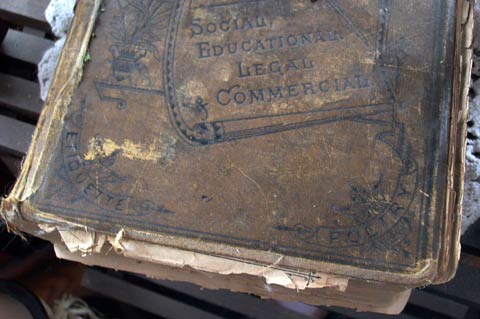|
Peace Education
by Anis Hamadeh January, 2003 |
 |
|||
|
Let us imagine such a school book project. The aim could be formulated as the availability of a standard historical text for all students in the world, in which they can read about the past of the international relations of their countries.
|
||||
|
Photograph © 2003 Lottermoser
|
||||
| The Schoolbook Project by Anis Hamadeh http://www.anis-online.de/fdp/neueblaetter13.htm#newpages13 The opposite of war is peace. But how do we reach it? In the course of my dealing with this question I came to two interacting motives or results, respectively, over and over again: firstly, peace by means of public and publicity, secondly, peace through the mastering of history. (See the article "Peace work and virtual Palestine" http://www.redress.btinternet.co.uk/ahamadeh3.htm. A recent radio news reminded me of that, on the occasion of the 40th anniversary of the Elysée Contract between France and Germany, and the news dealt with a school book project between Germans and French. The school books of the two countries shall consider the shared history in an equal way, so that each text is a translation of the other. Without question, this will further improve the already harmonious relations between the two peoples. We should do this worldwide! Let us imagine such a school book project. The aim could be formulated as the availability of a standard historical text for all students in the world, in which they can read about the past of the international relations of their countries. This is not to be understood in an ideological way, but rather as a kind of agreement between nations. It only secondarily is concerned with the respective domestic histories and concentrates on the interaction between countries. Similar to a UN resolution, this text will be elaborated in a process full of effort and conflict. There are two advantages of such a text in relation to a UN resolution: on the one hand it is written in a way that makes translations easy and that young people can understand. This to a major extent will exclude any phrase-mongers and ambiguities. On the other hand, different groups and individuals, such as politicians, journalists, or peace groups, independently from each other can enter this direction without needing further orders. The German monthly history journal "G/Geschichte", for example, successfully embodies this attitude and it is recommended by ministries and the German Youth Media Enterprise. If we want to live in a world with no violence, and if we want to prepare such a world for our children; we must express the nonviolent alternatives, coordinate them, and we must start now. Especially Germany already has generated good starting points, like the excellent German history TV documentaries. This attitude also concerns the press: the newspapers present historical interpretation every day, and of course there also are conflicts and struggles about these interpretations. But what makes more sense today than to struggle over history in a civilized manner? A text is to be construed which is accepted by all involved parties. That is the measure and a text which a child can understand. The Germans and the French will be able to manage, this is a start. A piece of the jig-saw: which other groups have similarly good relations and can follow without many problems to support the structure? Easy things first! The respective ministries of education then can decide upon the justice of the text in accepting it. But even if it was not possible to implement such a project on the high level quickly, the internet community is already generating a massive data bank. The science of history has been changed by the web, for nowhere else can you obtain focused information about the historical events in the world so rapidly. This historical flood is continuously increasing and it is interlinked. Universities, too, are living in the world of the aware public and are losing their ivory tower image in this new competition. The schoolbook project is a task that can be viewed within the framework of a world peace initiative. For in the beginning of this century we find more and more peace groups which get together and coordinate in the real virtual world with accelerating speed, for example, the Transcend group around Professor Johan Galtung (www.transcend.org). Many contemporary conflict management systems are circulating in the web. In view of this international activity we are in the position to approach such a complex issue as common world history. Peace does not rain out of the sky like manna. Peace is something active. We want and we need peace. Real peace. Honest peace |
||||
|
Iraq and Israel Palestine really are the major issues these days. I regard the problems to be interrelated, they are all about authoritarians and about weapon lobbies; it is the same in Africa and Europe.
|
||||